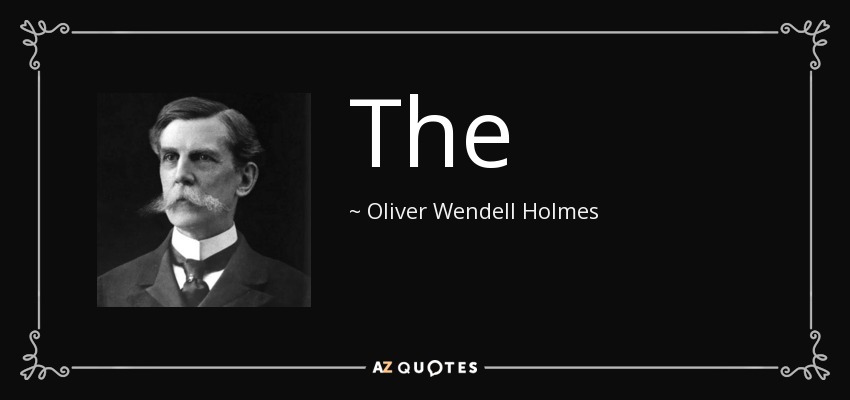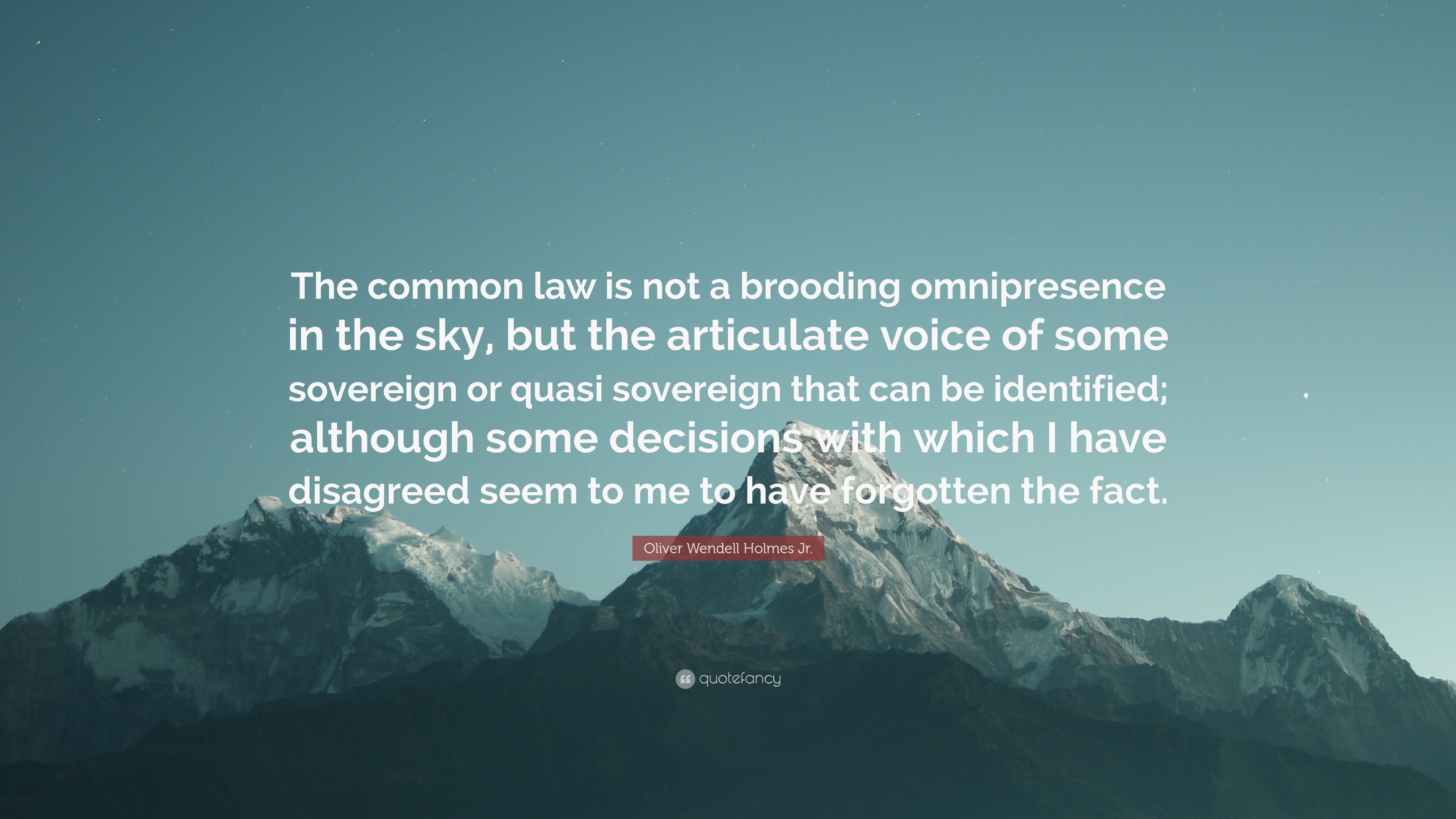

“Men to a great extent believe what they want to,” Holmes wrote, “although I see in that no basis for a philosophy that tells us what we should want to want.”Īddressing the subject of “jurists who believe in natural law,” Holmes wrote that they “seem to me to be in that naïve state of mind that accepts what has been familiar and accepted by them and their neighbors as something that must be accepted by all men everywhere.” But he argued that this notion“our truth is cosmic truth”was entirely unfounded.


He called those impulses a system of “Can’t Helps”: We can’t help believing them because, to us,they seem so true. Supreme Court Justice Oliver Wendell Holmes emphasized the danger of invoking divine morality when he wrote, in a 1917 opinion, “The law is not a brooding omnipresence in the sky.” He elaborated a year later, in a Harvard Law Review article titled “Natural Law.” Holmes noted we all have impulses that convince us, as individuals, of what is and is not true. He seems to be some sort of legal positivist influenced by Oliver Wendell Holmes, as he frequently cites that tart-tongued justice as if his word should be the last: To him, this would run the risk of introducing religious considerations into casesall those involving the contraceptive mandatewhere he thinks they don’t belong. Anthony Murray, educated at a Jesuit law school at a time when I would have thought that that still meant something, worries at great length thatgaspsome Supreme Court justices might actually believe in natural law.


 0 kommentar(er)
0 kommentar(er)
